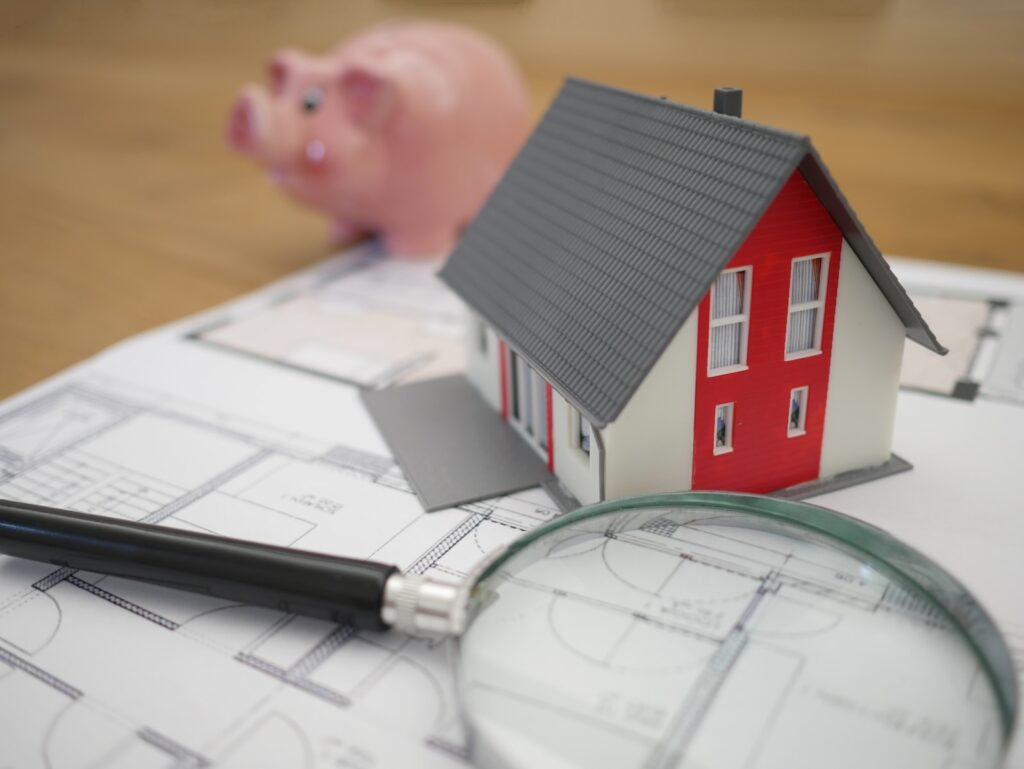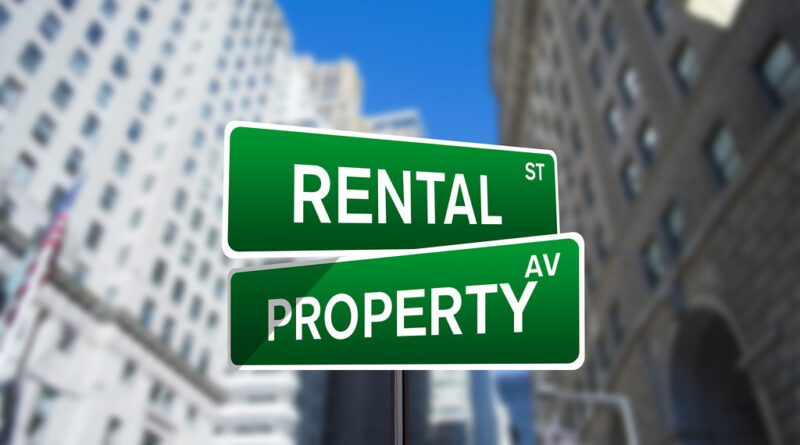Rental property financing: A checklist for Evaluating Property Value
As a real estate investor, borrower, or lender, finding the perfect rental property can be a daunting task. It’s easy to get caught up in the excitement of a potential investment, but evaluating the rental property value is essential to ensure that you are making a wise decision. Overpaying for a rental property or failing to factor in potential problems can result in costly mistakes that can hurt your finances in the long run.
In this article, we’ll provide you with a comprehensive checklist for evaluating rental property value when considering rental property financing. By following this checklist, you’ll be able to avoid overpaying for a rental property, identify potential problems that could affect its value, ensure that the property generates sufficient income to cover your financing costs, and make informed decisions when considering rental property financing.
Benefits of Reading this Checklist
When evaluating rental property value, there are many factors to consider, and it can be overwhelming to know where to start. This checklist provides a comprehensive guide to help you evaluate the rental property value before making a financing decision.
Tips for Evaluating Rental Property Value
1. Location
The location of the rental property is one of the most important factors in determining its value. Consider the following:
- Neighborhood
- Is the property located in a desirable neighborhood? Properties located in desirable neighborhoods with access to schools, shopping centers, public transportation, and other amenities will attract more renters, which can increase the property’s value. On the other hand, properties located in areas with high crime rates or undesirable features such as high traffic or industrial noise can reduce its value.
- Crime rate
- What is the crime rate in the area? Properties located in high-crime areas can be difficult to rent, and this can affect their value negatively. On the other hand, properties located in low-crime areas are generally easier to rent and can have a positive effect on their value.
- Growth potential
- Is the area experiencing growth in population and job opportunities? Properties located in areas with growth potential tend to appreciate in value over time. This is because increased demand for rental housing results in higher rental rates and increased property values. On the other hand, areas that are losing population or experiencing a decline in jobs may have lower rental rates and property values.
- Future developments
- Are there any planned developments in the area that could impact property value, such as new highways or commercial centers? Properties located near planned developments such as new highways or commercial centers tend to appreciate in value over time. On the other hand, properties located near planned developments that could negatively affect the quality of life such as industrial plants or prisons may depreciate in value.
2. Physical Condition of the Property
The physical condition of the rental property can greatly affect its value. Here are some things to consider:
- Age of the property
- How old is the property? Older properties may have outdated systems such as plumbing, electrical, and HVAC systems, which can lead to maintenance issues and higher costs. Properties with newer systems are generally more valuable.
- Overall condition
- Is the property well-maintained? Properties that are well-maintained and in good condition are generally more valuable. Look for signs of water damage, mold, or pests, which can indicate problems that could affect the property’s value.
- Upgrades and renovations
- Has the property been updated or renovated recently? Properties with updated appliances, fixtures, and finishes are generally more valuable. Renovations or upgrades that improve the functionality or aesthetics of the property can increase its rental income potential, which can also increase its value.
- Potential repairs and maintenance costs
- Are there any repairs or maintenance costs that you will need to factor into your budget? Properties that require significant repairs or maintenance costs can be less valuable than properties that require minimal upkeep.

3. Rental Income Potential
The rental income potential of the property is another crucial factor to consider. Here are some questions to ask:
- Current rental rates
- What are the current rental rates in the area? How do they compare to the rental rate of the property? Properties with rental rates that are similar to or higher than the rates in the area are generally more valuable. On the other hand, properties with rental rates that are significantly lower than the rates in the area may be less valuable.
- Occupancy rate
- What is the occupancy rate of the property? Properties with high occupancy rates are generally more valuable than those with low occupancy rates. High occupancy rates indicate that the property is in demand and that renters are willing to pay the rental rate.
- Future rental income potential
- Are there any opportunities to increase the rental income, such as through renovations, upgrades, or adding amenities? Properties with the potential for increased rental income are generally more valuable. For example, adding a washer and dryer, upgrading the kitchen appliances, or adding a pool or gym can increase the rental income potential and the property’s value.
4. Expenses and Financing Costs
When evaluating rental property value, it is essential to factor in expenses and financing costs. Consider the following:
- Property taxes
- What are the property taxes for the rental property? High property taxes can reduce the property’s value, as they increase the expenses associated with owning the property.
- Insurance costs
- What are the insurance costs for the rental property? High insurance costs can also reduce the property’s value, as they increase the expenses associated with owning the property.
- Maintenance costs
- What are the expected maintenance costs for the rental property? Properties with higher expected maintenance costs are generally less valuable, as they increase the expenses associated with owning the property.
- Financing costs
- What are the financing costs for the property, including interest rates, loan fees, and closing costs? Higher financing costs can reduce the property’s value, as they increase the expenses associated with financing the property.
5. Potential for Appreciation
Finally, consider the potential for appreciation when evaluating rental property value. Here are some factors to keep in mind:
- Market trends
- Is the real estate market in the area appreciating or depreciating? Properties located in areas with appreciating markets tend to appreciate in value over time. On the other hand, properties located in areas with depreciating markets may have lower property values.
- Growth potential
- Is the area experiencing growth in population and job opportunities? Properties located in areas with growth potential tend to appreciate in value over time. This is because increased demand for rental housing results in higher rental rates and increased property values. On the other hand, areas that are losing population or experiencing a decline in jobs may have lower rental rates and property values.
- Location
- As mentioned earlier, location is a critical factor in determining appreciation potential. Properties located in desirable neighborhoods or near planned developments tend to appreciate in value over time, while properties located in undesirable neighborhoods or near undesirable developments tend to depreciate in value.
Action Steps: Checklist for Evaluating Rental Property Value
Here is a checklist to help you evaluate rental property value:
- Research the neighborhood and consider crime rates, growth potential, and future developments.
- Inspect the property and consider the age, condition, upgrades, and potential repairs and maintenance costs.
- Research the rental income potential by considering current rental rates, occupancy rate, and future rental income potential.
- Factor in expenses and financing costs, such as property taxes, insurance costs, maintenance costs, and financing costs.
- Consider the potential for appreciation by researching market trends, growth potential, and location.
Examples of Using Rental Property Value for Maximum Effect
Here are some examples of how evaluating rental property value can be used for maximum effect:
- Identifying undervalued properties that can be purchased for a lower price and have potential for appreciation. By evaluating the rental property value, you can identify properties that are priced lower than their true value due to factors such as lack of awareness of the property’s potential, motivated sellers, or market conditions.
- Avoiding overpriced properties that may not generate sufficient rental income to cover financing costs. By evaluating the rental property value, you can avoid overpaying for properties that do not generate sufficient rental income to cover your financing costs, including expenses and interest payments.
- Identifying properties with potential for increased rental income through renovations, upgrades, or added amenities. By evaluating the rental property value, you can identify properties that have the potential for increased rental income through renovations, upgrades, or added amenities, such as a washer and dryer, upgraded kitchen appliances, or a pool or gym.
- Forecasting future appreciation potential to make informed investment decisions. By evaluating the rental property value, you can forecast future appreciation potential based on factors such as market trends, growth potential, and location. This can help you make informed investment decisions and avoid investing in properties that may not appreciate in value over time.
Final Words
Evaluating rental property value is essential when considering rental property financing. By following this checklist, you can ensure that you are making an informed decision based on the property’s location, physical condition, rental income potential, expenses and financing costs, and potential for appreciation. Use this checklist to make informed decisions and avoid costly mistakes when investing in rental properties.
Are you considering rental property financing? Don’t make a decision without first evaluating the rental property value. Use this checklist to make informed decisions and avoid costly mistakes.
